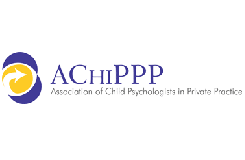The Gift of Being Gifted
I have been approached by a magazine to share some thoughts regarding talented and gifted children. We often identify that children who are struggling academically need support, but what about those who are fortunate enough to have exceptional skills or talents? I was asked a number of questions and include a brief outline of my answers below.
How does one identify whether a child is significantly ‘gifted’ or overachieving enough to warrant special education or support to keep them challenged?
When a parent or teacher can see that a child is advanced in their development compared to their peers, they may begin to wonder whether they are gifted. It is important to note that ‘gifted’ can mean different things to different people in different contexts or cultures. Giftedness, intelligence, and talent are fluid concepts and usually apply to children who have outstanding levels of aptitude or competence in one or more areas of learning/experience. If a teacher identifies that a particular child appears to be gifted, they may suggest differentiated educational experiences, which adapt the level, depth, and pacing of curriculum and after school programs to match the child’s current levels of achievement and learning rates. Additional support services include more comprehensive assessment, counselling, parent education, and specially designed programs, where teaching and learning are accelerated. Sometimes gifted children have not had the opportunities to learn and demonstrate their potential, and these individuals need to be identified on aptitude rather than achievement. These students will need even more support to develop their ability in line with their potential.
What are the long term effects of a child who isn’t stimulated enough by their education?
Aptitude alone does not predict a child’s achievement. Their potential needs to be nurtured by their parents and educators. There is a misconception that gifted children do not need special attention in the classroom as they will just get on with it. Gifted children do however face problems and challenges and without this being recognised and them being appropriately stimulated in the classroom, this can lead to apathy and them not achieving their potential. We do however need to strike a balance as they need to have a sense that they are capable however when expectations from others become too high, they may become perfectionists and believe that anything less than perfect is failure. High expectations can also potentially lead to burnout. It is important to instil the value of the gifted child evaluating their own work or talent rather than relying on praise and affirmation from others as the latter can lead them needing constant reassurance, and leave them generally feeling dissatisfied with their performance, regardless of how exceptional it is.
What advice would you give to parents who think their child might be in this category?
It would be important to identify whether your child fits into this category so that their innate skills can be nurtured by their environment in a supportive and appropriate way. I have come across many parents who believe that their children are gifted as they complain of being bored at school. While this is the case in a small number of cases, it is important to recognise that bored is often used by children as a synonym for difficult. While the concept of being gifted is made up of a number of concepts, assessment by an appropriately qualified child psychologist can help in identifying children that are gifted and talented and can also help to nurture strengths and identify specific difficulties that may be getting in the way of a child reaching their potential.
What extra support can a child psychologist offer?
Child psychologists can provide assessments in order to help identify children that may be gifted and talented. Whist the majority of parents do not necessarily require the input of a child psychologist, we are able to guide parents in how to support their children to nurture their exceptional qualities and develop to their emotional, social and learning potential. We can guide parents on strategies to avoid burnout and the development of perfectionistic tendencies, which can become crippling in the long term. We can also provide support directly to the child should the child exhibit anxiety, low mood, experience difficulties socialising or relating to peers or experience difficult relationships within the family.





